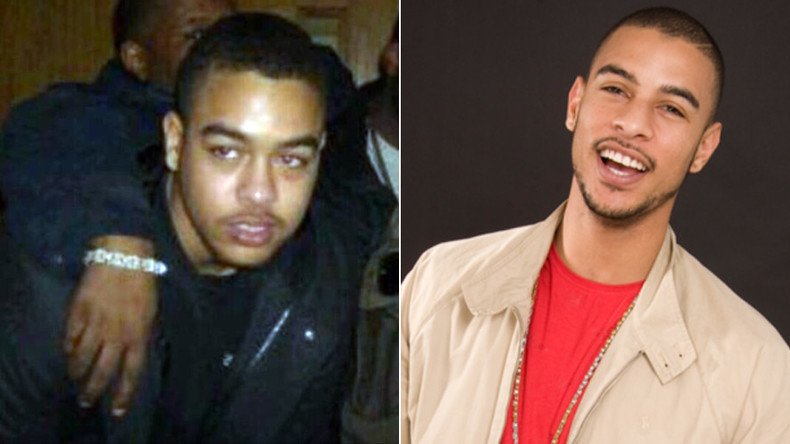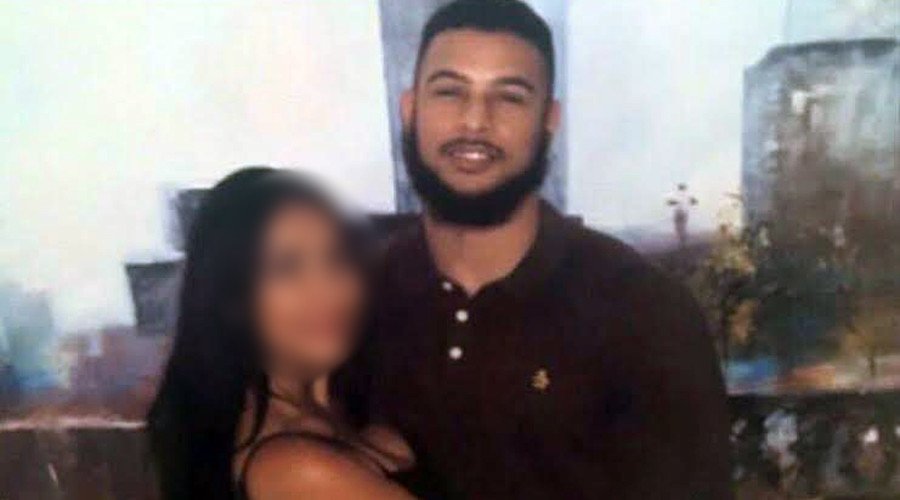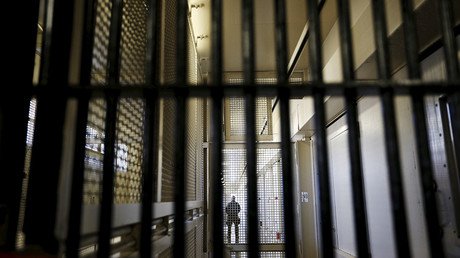‘Miscarriage of justice’: Brothers jailed for murder despite CCTV proving they weren’t even there

Two brothers jailed for murder despite CCTV footage showing they weren’t actually at the scene at the time of the killing are victims of a grave miscarriage of justice, their mother says. She has vowed to continue fighting for their release.
Asher and Lewis Johnson were each sentenced to a minimum of 16-and-a-half years for the murder of Thomas Cudjoe, 29. Another man, Jerome Green, stabbed Cudjoe to death as he sat in the driver’s seat of a Ford Focus at a garage forecourt near a pub in Ilford, east London, in November 2012.
The brothers, both in their 20s, were jailed under joint enterprise law. They never touched the murder weapon and left the scene before the fatal stabbing took place.
“You don’t realize how unfair the justice system is until you’re involved in it,” their mother Gillian Hyatt told RT.
“I just don’t know how they found them guilty, I just don’t. Even at their appeal it was admitted that the boys couldn’t have had knowledge [that Green would kill Cudjoe], yet their appeal was still dismissed. It just doesn’t make sense.”
On the night of the murder, the Johnsons and Cudjoe got into an altercation that lasted 25 seconds outside the pub. As more people arrived, the brothers withdrew from the scene to distance themselves from any trouble, their lawyers say.
CCTV footage played in court shows the Johnsons leaving the forecourt before Green arrives and stabs Cudjoe to death. Despite this, the Johnsons, along with Green, were found guilty of murder under joint enterprise law.
The joint enterprise doctrine states that a person who assists or encourages a crime can be held just as legally responsible as the person who actually carries it out. It only requires a defendant to “foresee” that a member of a group might intentionally cause someone else serious harm.
Hyatt says her sons could not have foreseen the murder, as there was no planned attack or common enterprise between them and Green. She says they were found guilty by association and through a false narrative they were part of a “gang.”
“[Asher] was a youth worker. He had never been in trouble before. He was playing football, and his good character was kept off the trial. Because of that, they don’t look at you as an individual person - they label you as a ‘gang’ member when that’s not true," she said.
Crown prosecutors said the killing had been an agreed revenge attack on Cudjoe, who had been acquitted six months earlier for the attempted murder of one of their friends.
“They found my sons guilty by association,” Hyatt said.
“When Asher was 16, [Crown prosecutors] said he was stopped in a car with one of [Cudjoe’s] victims. That’s basically eight, nine years before the trial.
“Just because my son got a lift, they’re associating him with one of [Cudjoe’s] victims. Because of that ‘association,’ they put a story together of a revenge attack.”
The Supreme Court ruled last year that joint enterprise law had been “misinterpreted” for three decades, having taken a “wrong turn” in the 1980s. It said it was wrong to treat “foresight” as a sufficient test to convict a defendant, and that juries had to decide on the “whole evidence.”
The Johnsons' case was brought as a 'test' on the discredited doctrine just a few months later, but they were unsuccessful in their appeal. Lord Thomas said the court was satisfied that there was no injustice in their case.

“The system is unfair. You can’t win - they’ve set it that way,” Hyatt said.
“After they were convicted, [we] lost a lot of hope. Then losing an appeal, you just don’t have a lot of faith or hope in the system.”
Having exhausted all options for appeal in the UK, Hyatt plans to take the case to the European Court of Human Rights (ECHR). Their counsel argues a joint-enterprise conviction is contrary to Article 7 of the European Human Rights Convention, which says there should be “no punishment without law.”
Campaign group JENGbA, or Joint Enterprise Not Guilty by Association, supports over 800 prisoners, the youngest of which is just 13. Almost 80 percent of JENGbA prisoners are from black and ethnic minority (BAME) communities.
Those convicted under joint enterprise include an autistic man who never touched the weapon or knew it existed, and 11 young black men in Manchester convicted through “racial stereotypes” linking them to a gang.













